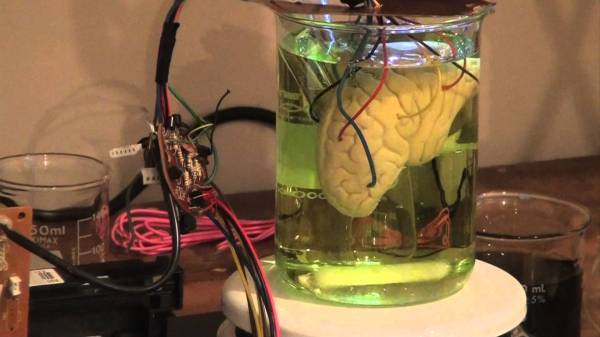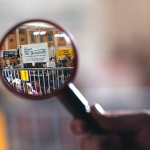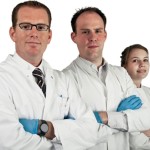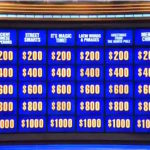Do Catholics Know Their Theology is Correct?: A Response
by Brandon Vogt
Filed under Belief
NOTE: On Monday we featured a guest post by one of our non-Catholic contributors, Steven Dillon, titled "Do Catholics Know Their Theology is Correct?". Today Catholic writer Brandon Vogt responds.
Before beginning my response to Steven Dillon's thoughtful article at Strange Notions, "Do Catholics Know That Their Theology is Correct?", I want to first thank him for contributing. I've long admired Steven's clarity, good-will, and irenic approach. It's always a delight to interact with him.
Now before getting to the meat of his argument, I wanted to defuse a couple misunderstandings at the beginning. In his second paragraph, Steven writes "an atheist can discern the Catholic Church’s claim to having not contradicted itself in any of its official teachings." Indeed, an atheist can and should examine such a claim. And Steven provides two examples where he thinks the Catholic Church has offered contradictory teachings. The first concerns original sin and salvation:
"The extraordinary magisterium decreed – through the 15th century Council of Florence – that whoever dies in the state of original sin alone goes to hell. But, no one can die in the state of original sin alone if, as the universal and ordinary magisterium currently teaches, God gives everyone the grace necessary to be saved; for the acceptance of this grace removes original sin and its rejection adds mortal or venial sin. Which infallible magisterium is right?"
On my reading, I simply don't see a contradiction between those two statements. I suppose Steven is wondering how someone can die "in original sin alone", and that's perhaps where he sees a contradiction. One example would be a child born into original sin, but who dies before receiving the Sacrament of Baptism but also before committing any mortal sins. It is at least possible that such children are not saved. (Although many Catholics, including myself, believe that such children are saved through a sort of baptism by blood—a technical idea too complex to go into here.) But the point is there is no logical contradiction between the two statements that Steven offered.
Steven's second proposed contradiction concerns the Church's claim of papal primacy. If that teaching was true, and stemmed from Christ and the apostles, Steven wonders, why was it not more widely attested in the early centuries or in St. Luke's Gospel? Without answering that question directly (that's for another article), all we should note is that, again, this entails no logical contradiction here. Even if we grant Steven's supposition that the doctrine wasn't widely professed, that would not contradict its authenticity. Things can be true without being widely known or attested (although I think papal primacy was both.)
With those two points out of the way, let's move on to Steven's key contentions in his article. Steven is primarily interested with the question, "Do Catholics know their theology is correct?" Right off the bat, we run into an obstacle since Steven doesn't define how he's using the word "know." In the field of religious epistemology, there are several types of knowledge and therefore to understand Steven's ensuing points, we have to understand how he's using that term here. (Perhaps in the comment box below Steven can define how he's using it.)
In reading the rest of the article, it seems clear to me that Steven has adopted the central error of Skepticism: equating "knowledge" with "certainty." Although this conflation is common today it is rife with problems. For instance, under such a definition, we couldn't really know anything, even things we're fairly confident about. If you were asked, "Do you know you're typing on a computer?" then under this definition, my answer would have to be:
"Well, I think I am, but perhaps I'm actually a brain in a vat and a mad scientist is manipulating chemicals to make me believe I'm typing on a computer. Since that's at least possible, I can't be certain that I'm really typing on a computer. I guess I don't know whether I'm typing on a computer. So no, I don't know."
Most people would consider this response absurd, even though it flows logically from Steven's equating of "knowledge" with "certainty." But if the response is absurd and untenable, then so is the original conflation.
Let me pose the problem another way. When you assume that knowledge entails certainty, you suppose that in order to know X, you must know with certainty that you know X, which requires you must know with certainty that you know with certainty that you know X, etc. etc. etc. The claim "knowledge entails certainty" is, therefore, ultimately self-defeating because you can never attain certain knowledge of your knowledge.
If Steven's question (do Catholics know their theology is correct?) refers to epistemic certainty, then we Catholics would happily answer "No", just as the computer typist in our example would have to. However, if Steven were using "know" in the most common sense, meaning to "be reasonably aware of through observation, inquiry, or information", then we would give a more affirmative reply. Catholics know their theology is correct in ways similar to knowing our history or physics is correct, although in the case of theology, Catholics also have recourse to a divinely-guided magisterium who distinguishes truth from falsity (on some issues.)
In addition to defining "know", it's also important we understand what Steven means by "their [i.e., Catholic's] theology." Perhaps by "their theology" Steven is referring only to the Catholic Church's magisterial teachings, as delivered through Scripture, Tradition, Church councils, popes, etc. But perhaps he's also including the theology professed by individual Catholics (i.e., "my personal theology", or what I believe about God), which is often diverse and contradictory, and certainly in addition to the Church's magisterial teachings. This is an important distinction because, for example, I may "know" theological truths expressed infallibly by the Church's magisterium but be hesitant about saying I "know" theological truths that I hold personally, but which haven't been formally adjudicated. To be more concrete, I know that Mary was born without original sin primarily because the Church's divine teaching authority has infallibly confirmed this, providing strong warrant. But I don't know whether God has incarnated himself on other planets to other species, although I do have an informed theological opinion about it. It's not clear which, or both, of those scenarios would pertain to Steven's question, "do Catholics know their theology is correct?" since both scenarios concern theological concepts. A Catholic's answer to his question would vary based on which set of claims Steven is referring to.
One more point of confusion. To me at least, it's not clear whether Steven is using "theology" the way Catholics would either. He defines theology as "the theorizing about a piece of divine revelation." But divine revelation only comprises part of theology. For example, one of the largest and oldest sub-disciplines of theology is Natural Theology, which concerns what we can know about God without the aid of divine revelation, simply through nature and reasoned reflection. Thus we can arrive at knowledge of God's existence by reasoning from the contingent world around us (natural theology), or we can arrive at knowledge of God's existence through the divine authority of Christ's Church, which has taught this point infallibly (revealed theology). The same conclusion can be arrived at through two paths, and thus entail different levels of knowledge or certainty.
Those are all necessary distinctions we must settle before we can answer Steven's core question. But instead of just stopping there to wait for these clarifications, I would like to engage one of Steven's major claims. He writes:
"Expert theologians'…reasons for holding this-or-that theological belief have not been good enough to persuade any significant portions of their peers even after centuries and centuries of scholarship…If experts do not have good enough reasons to settle a dispute, then the dispute is not settled. The fact of the matter is not yet known."
The problem I see with this suggestion is that just because a claim lacks complete consensus doesn't mean we lack knowledge about that claim. To see plenty of counter-examples, simply turn to the natural sciences. Many people disagree about evolution, but that doesn't mean we lack knowledge about evolution. It's therefore false to assume that disunity about a particular belief means that nobody has knowledge concerning that belief, or that such knowledge is impossible or difficult to attain.
In the quoted paragraph, I'm also not sure what Steven is referring to when he says "this-or-that theological belief." For many theological beliefs have been widely persuasive. Among expert theologians, there is almost unanimous agreement that Jesus claimed to be God, that he was crucified, and that he rose from the dead. The core tenants of the Nicene Creed are held with equal assent (as Steven later admits). Thus by Steven's own evaluation, in which majority assent is a key feature of true knowledge, theologians can say they "know" the tenants of Jesus' resurrection and the entirety of the Nicene Creed.
So in summary, to answer Steven's original question (do Catholics know their theology is correct?) we must understand what he means by "know" and "theology". It would also help if, instead of considering theology in general, we narrowed it down to a particular theological belief: do Catholics know their theology about [X] is correct?
But if I had to answer in the most general way, "Yes, Catholics have strong warrant to believe their theological beliefs are true."
Again, I appreciate Steven's thoughtful article and I look forward to his responses in the comment boxes.
(For those interested in a Catholic approach to epistemology written by one of the Church's greatest intellects, I recommend Blessed John Henry Newman's classic, Grammar of Assent. You can read it free online or sample his ideas in this article.)
Related Posts
Note: Our goal is to cultivate serious and respectful dialogue. While it's OK to disagree—even encouraged!—any snarky, offensive, or off-topic comments will be deleted. Before commenting please read the Commenting Rules and Tips. If you're having trouble commenting, read the Commenting Instructions.













